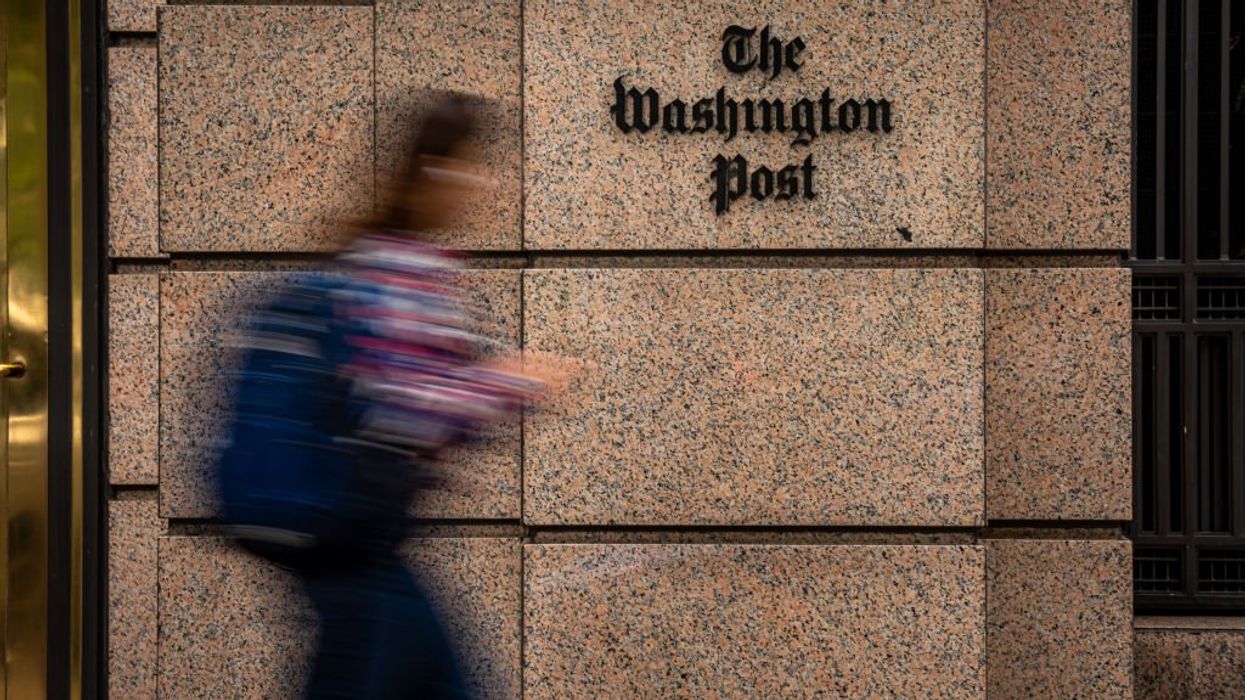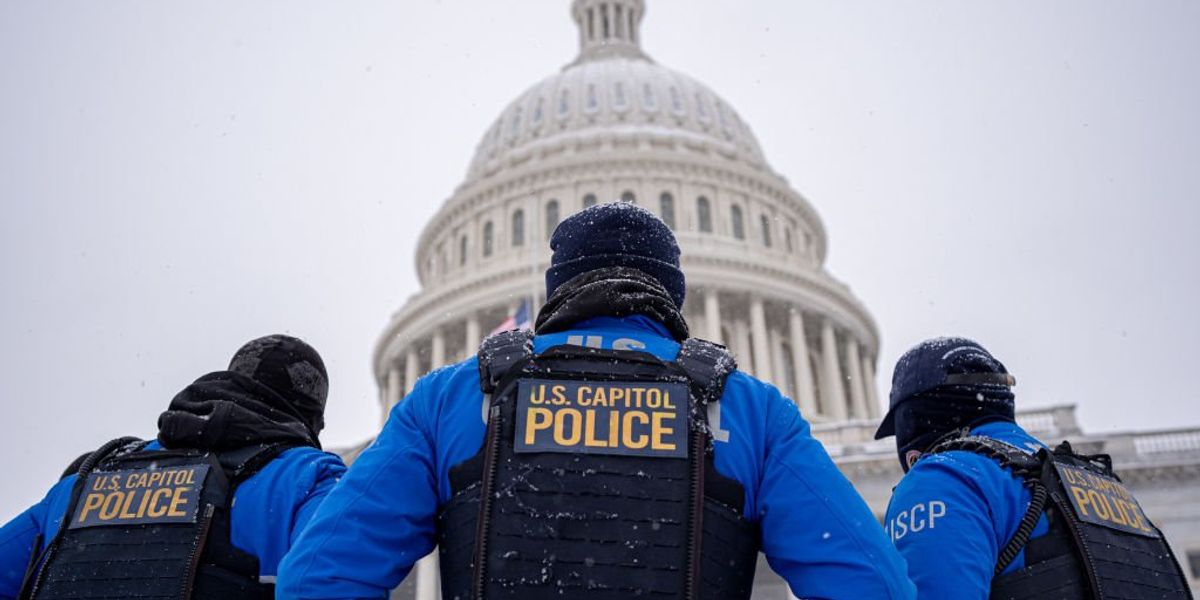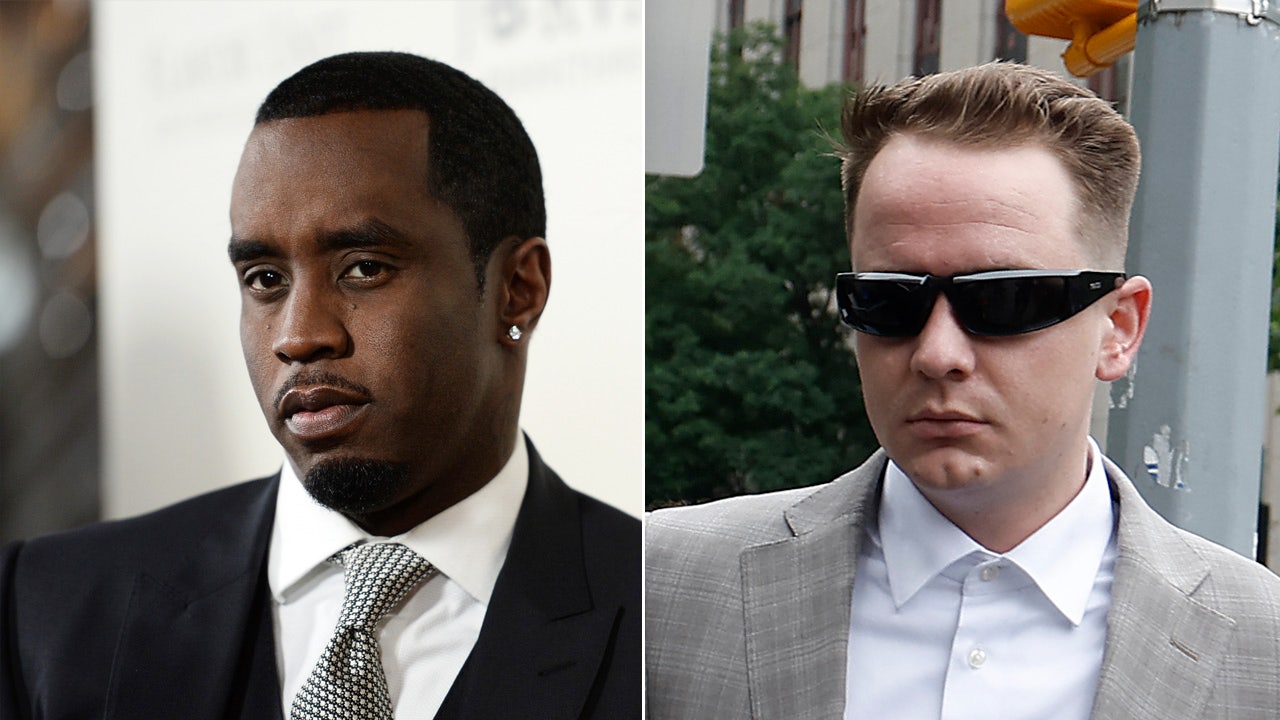The corporate media has earned a reputation for ignoring, downplaying, or outright denying stories that challenge its ideological leanings — from the lab-leak theory of COVID-19 to the obvious decline in President Joe Biden’s mental and physical fitness. These stories eventually became impossible to deny. But in many cases, the recognition came too late to matter.
So far, that reckoning hasn’t come for the United States Capitol Police.
‘The corruption persists because of what they know about bad Congress members and their bad behaviors.’
For years, allegations of corruption have dogged the USCP. Yet, local and national media outlets continue to turn a blind eye — even after an officer with a scandal-ridden history was named interim chief of the department.
Last year, Blaze News investigative reporter Steve Baker published a detailed exposé uncovering deep-rooted misconduct within the USCP. His report alleged theft of government funds, perjury, fraud, and forgery involving high-ranking officers. Among the most damning revelations: Former Captain Sean Gallagher and two lieutenants under his command reportedly participated in a 2010 overtime scam.
Gallagher allegedly forged his supervisor’s signature on overtime forms, according to a 2012 internal investigation by the department’s Office of Professional Responsibility. He later claimed the forgery “never resulted in personal gain.” That revelation built on a 2014 National Journal report about the overtime abuse, though the earlier article did not name the officers involved.
Despite the seriousness of the allegations and the clarity of the documentation, Baker’s story received little to no attention from other media. Not even Washington-based outlets like the Washington Post or WUSA9 reported on the claims.
“Why is it that Blaze Media has done an exclusive on multiple cases of Capitol Police corruption, and the other media — especially the local media, who should be holding local agencies accountable — are ignoring the story?” Baker said in an interview.
RELATED: Favoritism, cover-ups reveal culture of corruption in US Capitol Police leadership
U.S. Capitol Police Acting Chief of Police Sean Gallagher. Tom Williams/CQ-Roll Call, Inc via Getty Images
That silence has consequences. As media scrutiny wanes, institutional accountability weakens — and careers flourish despite serious allegations.
On June 2, the U.S. Capitol Police announced Gallagher would serve as interim chief. Despite the prior disciplinary record, Gallagher has continued to ascend the department’s ranks. The appointment drew immediate criticism from within the agency.
The U.S. Capitol Police Labor Committee, which represents officers on the force, issued a rare rebuke, stating Gallagher “fails to meet the standard of trust and integrity required” to lead. Their public opposition stirred some interest among local reporters, but national media coverage remained scarce.
Departing Chief J. Thomas Manger defended the promotion, arguing Gallagher’s familiarity with the department outweighed past controversy. “If they pick someone from the inside, they’re going to know what our mission is,” Manger said before retiring. He accused the union of orchestrating a “smear campaign.”
Still, the union’s resistance had an effect. Within days, the department appointed Michael Sullivan, former acting police chief in Phoenix, to take over the USCP permanently.
‘It has far-ranging implications. The Capitol Police are charged with protecting every member of Congress. And yet no one wants to cover it.’
But for Baker, the deeper problem remains unaddressed.
“These cops know where all the bodies are buried,” he said. “The corruption persists because of what they know about bad Congress members and their bad behaviors.”
RELATED: Capitol Police name permanent chief hours after union slams controversial interim pick

Baker pointed to former Assistant Chief Yogananda Pittman, who was accused of intentional inaction during the Jan. 6, 2021, Capitol protests. She later landed a chief position at the University of California, Berkeley.
Too often, he said, officers with serious black marks on their records go on to secure law enforcement jobs elsewhere — thanks, in part, to systemic failures in reporting misconduct.
“All of these bad actors in law enforcement, when they have these types of disciplinary actions against them, that is supposed to be reported to a national database called the Lewis Registry,” Baker explained.
The Lewis Registry serves two critical functions: alerting prospective employers of past disciplinary actions and making such records accessible to defense attorneys if an officer testifies in court.
In Baker’s view, the Capitol Police scandals should concern more than just local watchdogs or city beat reporters.
“This is not just a local D.C. story,” he said. “It has far-ranging implications. The Capitol Police are charged with protecting every member of Congress. And yet no one wants to cover it.”
The U.S. Capitol Police, the Washington Post, and WUSA9 did not respond to Blaze News’ requests for comment.
Like Blaze News? Bypass the censors, sign up for our newsletters, and get stories like this direct to your inbox. Sign up here!
Read the full article here






![Aurora Hit Again by Suspected Tren de Aragua Gang Members [WATCH] Aurora Hit Again by Suspected Tren de Aragua Gang Members [WATCH]](https://www.lifezette.com/wp-content/uploads/2024/09/2024.09.02-01.01-lifezette-66d5b7339a31c.jpg)



![Bill Maher’s Thanksgiving Message Makes a Bunch of People Look Like Idiots [WATCH] Bill Maher’s Thanksgiving Message Makes a Bunch of People Look Like Idiots [WATCH]](https://www.boredtrashpanda.com/wp-content/uploads/2025/04/2025.04.13-09.46-boredtrashpanda-67fb88044619e.jpg)

